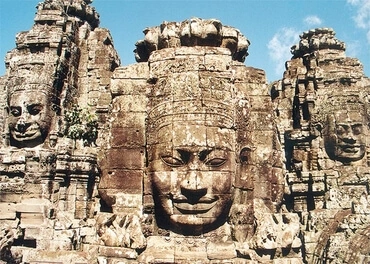1
And Abram went up out of Egypt, he and his wife, and all that he had, and Lot with him, into the south.
2
And he was very rich in possession of gold and silver.
3
And he returned by the way that he came, from the south to Bethel, to the place where before he had pitched his tent between Bethel and Hai:
4
In the place of the altar which he had made before; and there he called upon the name of the Lord.
5
But Lot also, who was with Abram, had flocks of sheep, and herds of beasts, and tents.
6
Neither was the land able to bear them, that they might dwell together: for their substance was great, and they could not dwell together.
7
Whereupon also there arose a strife between the herdsmen of Abram and of Lot. And at that time the Chanaanite and the Pherezite dwelled in that country.
8
Abram therefore said to Lot: Let there be no quarrel, I beseech thee, between me and thee, and between my herdsmen and thy herdsmen: for we are brethren.
9
Behold the whole land is before thee: depart from me I pray thee: if thou wilt go to the left hand, I will take the right: if thou choose the right hand, I will pass to the left.
10
And Lot, lifting up his eyes, saw all the country about the Jordan, which was watered throughout, before the Lord destroyed Sodom and Gomorrha, as the paradise of the Lord, and like Egypt as one comes to Segor.
11
And Lot chose to himself the country about the Jordan, and he departed from the east: and they were separated one brother from the other.
12
Abram dwelt in the land of Chanaan; and Lot abode in the towns that were about the Jordan, and dwelt in Sodom.
13
And the men of Sodom were very wicked, and sinners before the face of the Lord, beyond measure.
14
And the Lord said to Abram, after Lot was separated from him: Lift up thy eyes, and look from the place wherein thou now art, to the north and to the south, to the east and to the west.
15
All the land which thou seest, I will give to thee, and to thy seed for ever.
16
And I will make thy seed as the dust of the earth: if any man be able to number the dust of the earth, he shall be able to number thy seed also.
17
Arise and walk through the land in the length, and in the breadth thereof: for I will give it to thee.
18
So Abram removing his tent came and dwelt by the vale of Mambre, which is in Hebron: and he built there an altar to the Lord.








